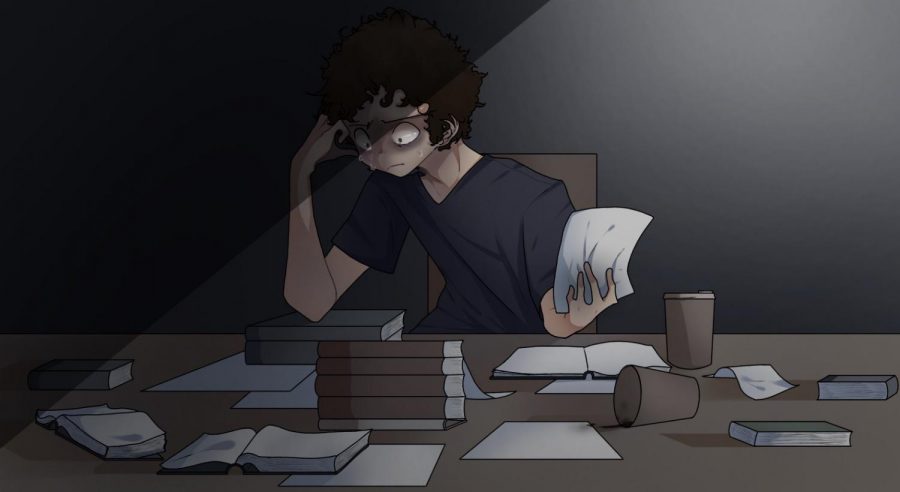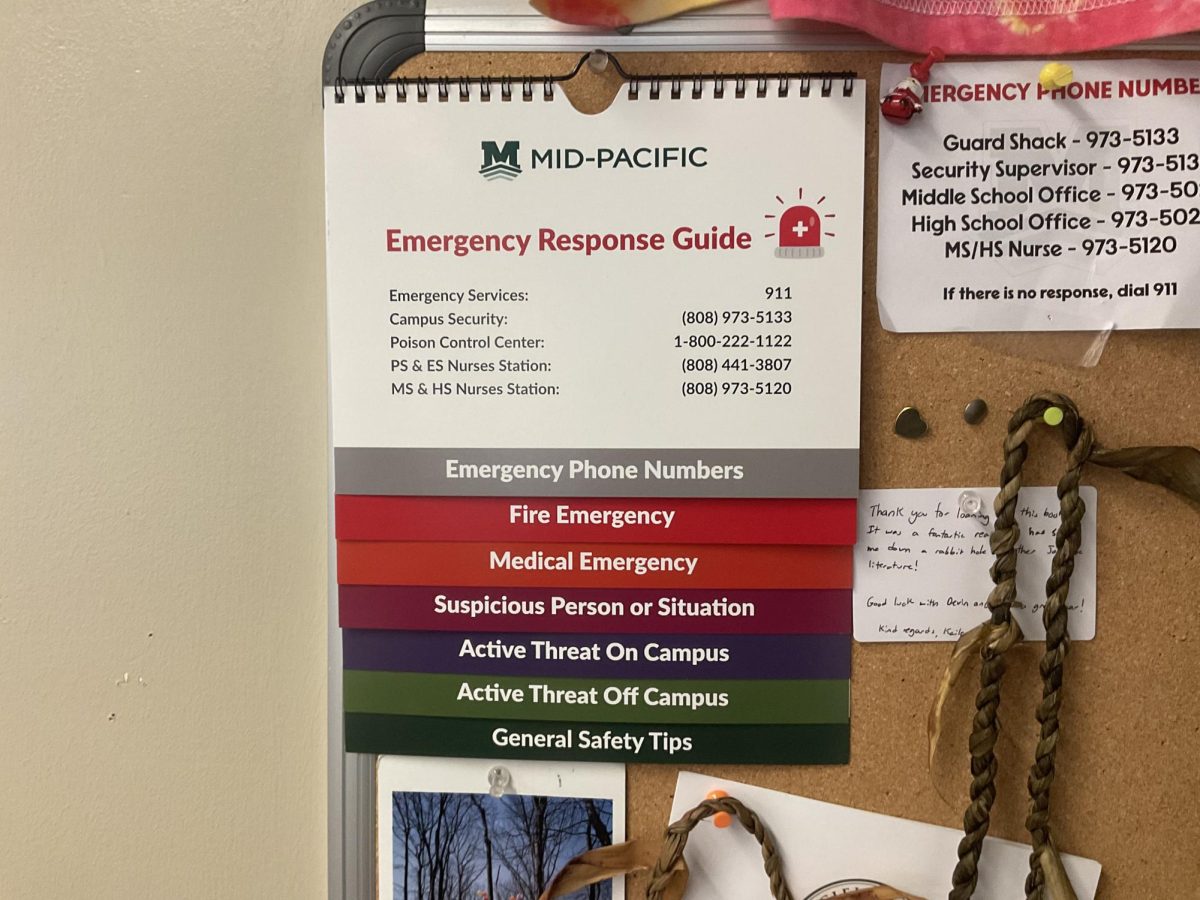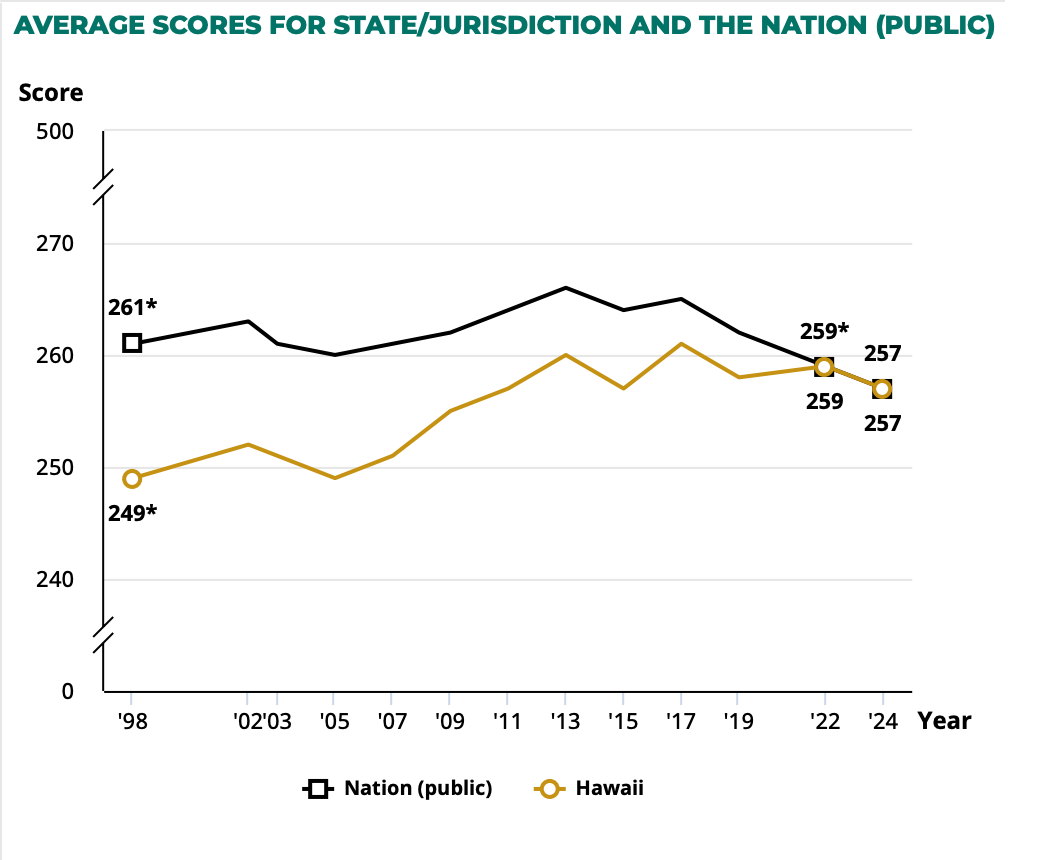Getting a good night’s sleep will benefit your health and immune system
Rell Uehera, contributing artist
Late nights could impact students’ brain function. Getting enough sleep is important, campus experts said.
September 23, 2020
Do you feel like your energy is draining? Is it hard for you to focus in school? Do your head and eyes hurt all the time? Maybe it’s because you are not getting enough sleep.
“Sleep is when your brain is functioning without a lot of input from your body. It’s like going on cruise control and cycling through the reset things that happen to us overnight,” said Mid-Pacific psychology teacher Stephanie Render.
The deeper the sleep, the better the reset is for you. If you don’t get enough sleep it’s like coming into school with a half full tank. You lose focus quickly, and you are prone to dozing off, said Render.
“If a teenager does not get enough sleep, then they lose their intellectual potential. That means they’re not as smart, meaning they lose focus, energy, and they are not as prepared for the next day,” said Mid-Pacific health teacher Michele Miyamoto.
“Normally, I just get really lazy and unmotivated when I lose sleep. I feel that school work gets harder, and I am constantly distracted,” said sophomore Akira Robertson-Chambers.
During school you are looking at a screen for hours on end, and especially for teenagers, getting a good night’s rest will greatly benefit your stamina and attention span when in online school, Render said.
“When you sleep it gives your brain a chance to go through the different sleep cycle pieces, and each of those are beneficial,” said Miyamoto.
A teenage brain is still developing, so it is important for teens to get a good night sleep, Render said. When you don’t get enough sleep, especially as a teen, you are more likely to lash out or be in a bad mood with friends and family.
“I have been a little bit moody, and I also get distracted easily with other technology because I am always up really late on my phone, which makes me tired during the day,” said sophomore Katrina Oide.
A teenager should get around nine hours of sleep per night. Life does happen and things do pop up, but you should strive to get around nine hours of sleep per night, Miyamoto said.
According to Nationwide Children’s Hospital, the average amount of sleep a teen gets is about 7 hours of sleep per night, which is two hours less than the recommended amount of sleep.
The organization also said after puberty, there is a biological shift for two hours in an adolescent’s internal clock, meaning if you got sleepy at 9 p.m., after puberty you would get sleepy at 11 p.m.. In return, you would get up two hours later.
“Back in March, I think teens thought that since we are in lockdown, I’ll just sleep, but that’s not happening right now because they’re going from screen time school, to screen time social, to screen time leisure, and that is impacting the quality of sleep,” said student counselor Jessie Mitchell.
Getting more sleep during online school will be beneficial, Mitchell said, but it is also important to take breaks. Like go outside and get some fresh air.
“Your immune system cells are very active when you sleep, so the more you sleep the better your immune system is boosted and you are less likely to get any severe COVID-19 symptoms,” Miyamoto said.







